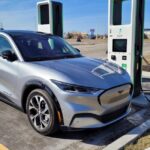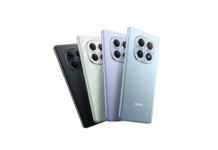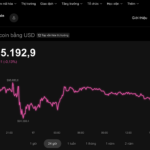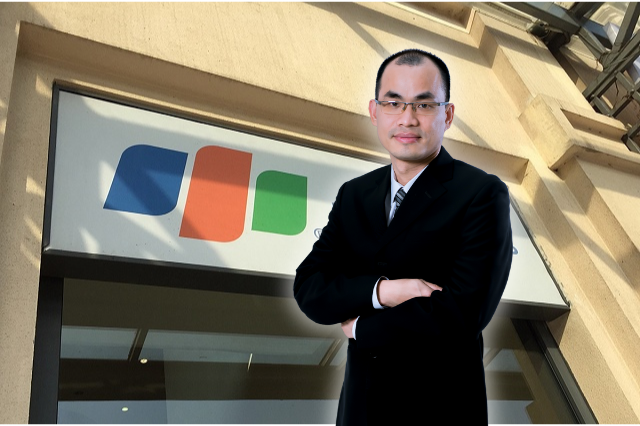
The Vietnamese automotive market has recently welcomed a new luxury electric vehicle, the Volvo EC40. In this episode of “On Seat 47,” host Dang Viet is joined by guest Le Thuong Tien to discuss the opportunities and challenges faced by the Volvo EC40 in Vietnam.
Mr. Tien is an experienced reviewer in the automotive industry and owns a variety of electric and luxury vehicles. What are his thoughts on the Volvo EC40 as someone with extensive experience in the field?
I feel fortunate to have several friends who own the XC40, which is in the same segment as the EC40 but with a gasoline engine.
The most important factor that draws people to choose a Volvo is its commitment to safety. Safety remains the top priority when it comes to Volvo vehicles, and the EC40 is no exception. I believe it upholds the same high safety standards as other Volvo models.
Secondly, as a luxury vehicle, the EC40 has a compact design that appeals to customers who prefer smaller cars. This segment of the market is quite significant.
Even before the official launch of the Volvo EC40 in Vietnam, many of my friends have expressed interest in the vehicle and its pricing. While I don’t anticipate high sales volumes for this model, it will certainly be an attractive option for those who appreciate Volvo vehicles.

Some people have noted that Volvo Vietnam’s approach to electric vehicles is quite unique. Other luxury car brands often introduce their electric models starting with high-end vehicles like the Mercedes-Benz EQS or Porsche Taycan. In contrast, Volvo has chosen to begin with an entry-level luxury model. What are your thoughts on this strategy?
Initially, I thought that selling luxury electric vehicles without a comprehensive charging network would be challenging. However, upon further reflection, I realized that the target customers for these smaller vehicles are unlikely to use them for long-distance travel. I believe that individuals who can afford to spend nearly 2 billion VND on an electric vehicle like the Volvo EC40 would opt for air travel when going on longer trips.
I am not a wealthy person, but my personal travel radius rarely exceeds 300 km, and the Volvo EC40 can easily accommodate that. Additionally, when traveling to a destination that is more than 300 km away, people typically stay overnight, so the range of the EC40 should be sufficient for most users.
Therefore, I think offering a more affordable model can make electric vehicles more accessible to a wider range of customers. While Mercedes-Benz may have struggled with the EQS, Volvo could very well find success with the EC40.

The Volvo EC40 is priced at 1.739 billion VND. Considering its features and price point, what are your thoughts on its prospects in the Vietnamese market?
This is the first time that Volvo Vietnam has officially distributed a fully electric vehicle, so they will need time to create awareness among customers about the EC40. Additionally, the company should guide customers on how to use electric vehicles comfortably in Vietnam.
If Volvo can successfully execute these strategies, they have a good chance of winning in the electric vehicle market here.

In your opinion, what should Volvo do to effectively guide and educate their customers about electric vehicles?
As someone who owns multiple electric vehicles without relying on public charging stations, I can say that it hasn’t been a problem for me. If your circumstances don’t allow for the use of an electric vehicle without a public charging network, then you simply wouldn’t buy one. On the other hand, those who can afford such vehicles already have the necessary conditions in place to own and use them comfortably.
Personally, I charge my electric vehicles at home and don’t rely on public charging stations. For longer trips, I prefer to fly. For shorter distances, the current range of electric vehicles, including the Volvo EC40, is more than sufficient.
It’s worth mentioning that some people find it inconvenient to have to charge their vehicles frequently, even if they are marketed as long-range. Ideally, the number of charges required should be minimized by having a larger battery capacity.

In my experience with electric vehicles, I typically charge them overnight at home. I don’t particularly care about fast charging because I don’t drive enough to deplete the battery in a day. I charge it overnight, and by morning, it’s ready for the next day’s use.
This is similar to how we use our smartphones today. A few years ago, when I traveled long distances with my electric vehicle, I had to leave it at the hotel to charge overnight and take a taxi to dinner. Nowadays, some restaurants and hotels have installed fast-charging stations provided by third-party companies. These businesses are smart to choose locations that are popular tourist destinations. During a recent trip to Ho Tram Beach, I was able to charge my vehicle there, and it made the whole experience so much more enjoyable.
The key takeaway from my story is that Volvo needs to communicate to its customers that “it is perfectly normal to use an electric vehicle without a widespread public charging network.” Those who cannot adapt to this reality shouldn’t purchase one, but those who can will find immense happiness in their decision.

Aside from safety, what is your favorite feature of the Volvo EC40?
It has to be the remote air conditioning start feature. Given the climate conditions in Vietnam, this is a practical feature that we’ve come to expect in vehicles. Surprisingly, none of the luxury vehicles in Vietnam offer this feature.
On the other hand, it’s a standard option in more affordable vehicles like Ford. I believe that having a cool and comfortable car to step into is a luxury that everyone would appreciate. It’s a feature that I feel is essential in the Vietnamese market.

Volvo has incorporated sustainability into the design of the EC40, such as larger, simpler wheel designs that require fewer production steps and reduce emissions. They have also replaced real leather with synthetic, recyclable materials to protect the environment. However, some people argue that luxury vehicles should have real leather to maintain their prestige. What are your thoughts on this matter?
In the world of supercars, manufacturers often use Alcantara, a synthetic material, instead of real leather. So, it’s quite unreasonable to say that a vehicle isn’t luxurious just because it doesn’t have real leather.
The perception of luxury is not solely dependent on whether the material is real or synthetic leather. It’s more about the quality and feel of the leather. To illustrate this, imagine touching my hand or another man’s hand versus touching the soft, smooth skin of a woman’s hand. I’m using this analogy to convey that synthetic leather, when done right, can feel even better than real leather, just like the soft skin of a baby.

One final question. In your opinion, what challenges will the Volvo EC40 face in the future?
The segment that the Volvo EC40 targets will have many potential customers. However, it is crucial for Volvo Vietnam to effectively communicate to consumers that not having a widespread public charging network is perfectly normal. If they can succeed in this aspect, Volvo will come out on top.
In my neighborhood, many people own electric vehicles without relying on a comprehensive public charging network, and they are perfectly content. They also own gasoline vehicles for their daily commutes.

Thank you for sharing your insights.
Prime Minister Directs Action on Bank Interest Rates; Fate of B1 and B2 Driver’s Licenses
Prime Minister Calls for Lower Bank Interest Rates; Nearly VND 670,000 Billion to be Pumped into the Economy; Important Updates on the Fate of B1 and B2 Car Driving Licenses; Gold Prices Fluctuate, Leaving Many Anxious. These were the notable highlights from the past week.
“The Speaker’s Call to Action: Expediting the Creation of a Legal Framework for Emerging Issues to Catalyze Vietnam’s Development”
After 29 and a half days of diligent, scientific, democratic, and responsible work, with a spirit of innovation and a timely resolution of difficulties, bottlenecks, and blockages, the 8th Session of the 15th National Assembly has successfully concluded, having accomplished all its proposed agenda items. This session was marked by a strong focus on economic and social development, national defense, security, and improving the lives of the people.
The Electric Vehicle Revolution: A Global Perspective.
Recent surveys by Ford Motor Company reveal that a majority of drivers in the region are considering purchasing electric vehicles (EVs), with a particular preference for hybrid technology.



















